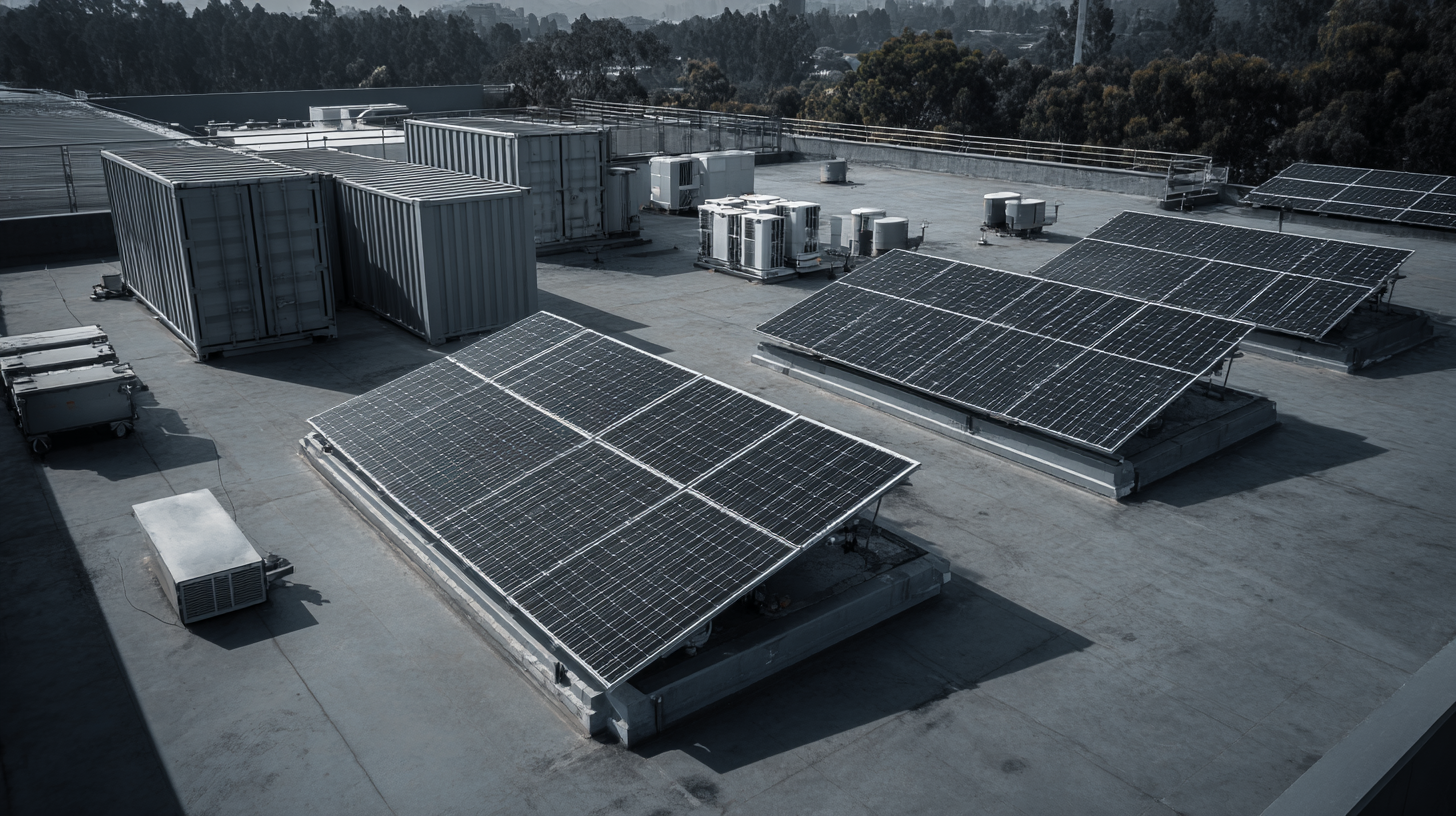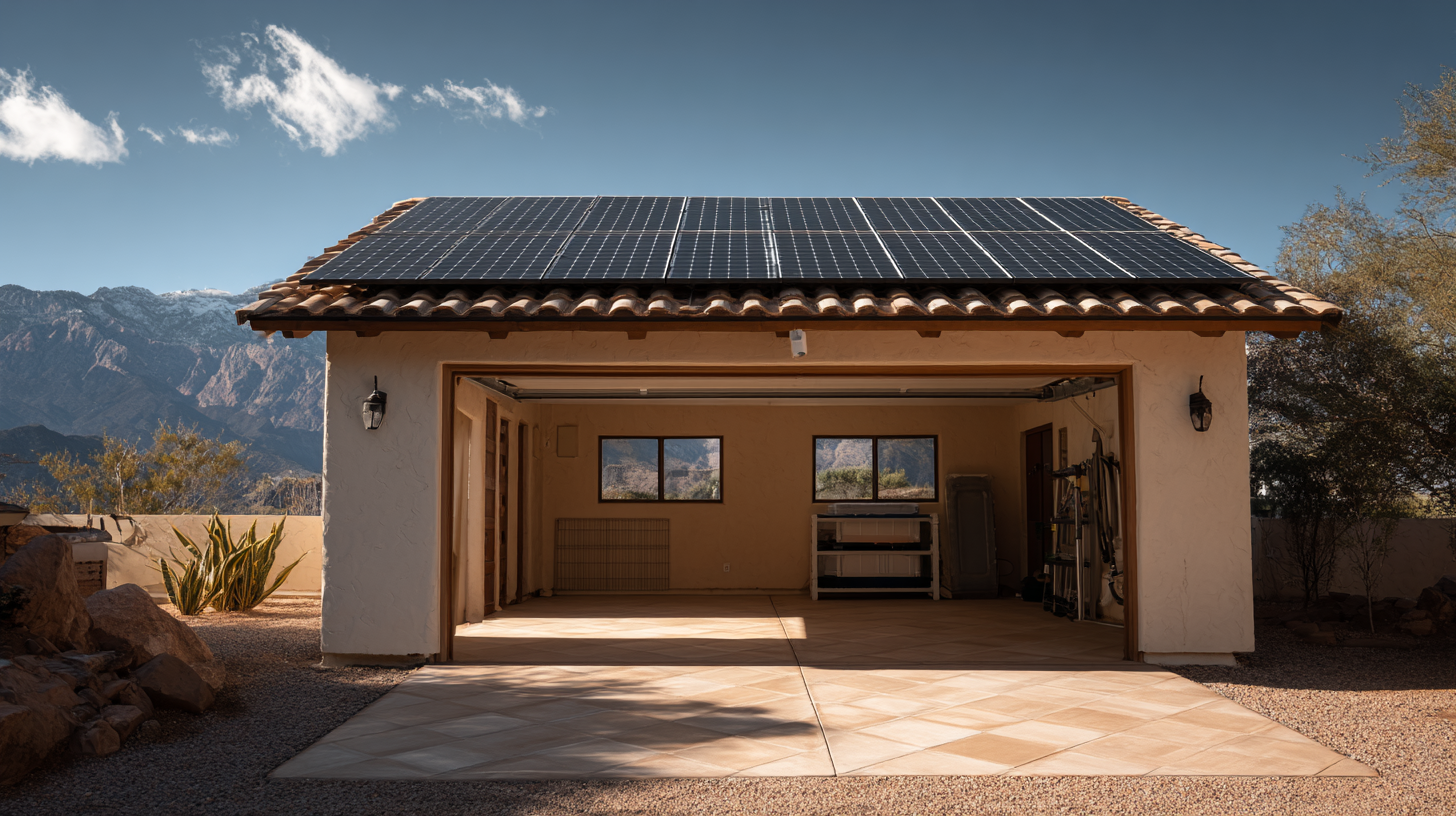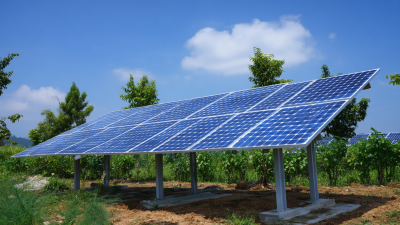ALL PRODUCTS
- Solar Panel
- Hybrid Inverter
- Lithium Battery
GSB SOLAR LITHIUM BATTERIES
- Gel Battery
- Solar Street Lights
- Pump Inverter
As the world increasingly turns its attention towards sustainable living, the integration of renewable energy sources has become more critical than ever. One of the most promising advancements in this area is the use of solar battery storage systems. These systems not only enhance the efficiency of solar energy utilization but also provide a reliable backup during power outages and reduce reliance on the grid. By harnessing the sun’s energy and storing it for later use, homeowners can significantly lower their carbon footprint while enjoying greater energy independence.

In this guide, we will explore how to effectively implement solar battery storage systems in your residence, maximizing the benefits of your solar panel installation. From understanding the technology behind these systems to tips on choosing the right one for your specific needs, we will break down the essential steps to ensure a smooth transition to a more sustainable lifestyle. With the proper knowledge and tools, you can unlock the full potential of your solar investment and contribute to a greener planet.
 As homeowners increasingly seek sustainable solutions, solar battery storage systems emerge as a vital component of eco-friendly living. These systems not only allow homeowners to store excess energy generated from solar panels but also provide a reliable power source during outages or peak demand times. By harnessing solar energy throughout the day, homeowners can significantly reduce their reliance on the grid, leading to lower utility bills and less environmental impact.
As homeowners increasingly seek sustainable solutions, solar battery storage systems emerge as a vital component of eco-friendly living. These systems not only allow homeowners to store excess energy generated from solar panels but also provide a reliable power source during outages or peak demand times. By harnessing solar energy throughout the day, homeowners can significantly reduce their reliance on the grid, leading to lower utility bills and less environmental impact.
Moreover, solar battery storage enhances energy independence. With the ability to store energy for use at night or during cloudy days, homeowners can ensure that they have access to electricity whenever they need it. This is particularly beneficial in areas prone to power outages or fluctuating energy costs. Additionally, many solar battery systems are designed to integrate seamlessly with home energy management systems, allowing for efficient monitoring and usage of stored energy. This combination of reliability, cost-effectiveness, and environmental awareness makes solar battery storage an attractive option for homeowners committed to sustainable living.
In recent years, solar battery storage systems have emerged as a powerful solution for maximizing energy independence for homeowners and businesses alike. According to a report by the International Renewable Energy Agency (IRENA), the global energy storage market is projected to grow significantly, with an estimated capacity of 1,300 GWh by 2040. This rapid expansion underscores the increasing reliance on renewable energy sources and the need for effective storage systems to harness solar energy for use during non-sunny periods.
Battery storage solutions allow users to store excess energy generated during peak sunlight hours, enabling them to utilize this energy when demand is highest, typically in the evenings. A study by the U.S. Department of Energy indicates that homes equipped with solar storage generate 50-70% more savings on electricity bills compared to those reliant solely on traditional grid energy.
As technology advances and the cost of solar battery systems declines — with prices dropping over 70% since 2010 according to Bloomberg New Energy Finance — the potential for achieving energy independence has never been more attainable for consumers looking to embrace sustainable living.
The adoption of solar battery storage systems is rapidly transforming the landscape of renewable energy utilization. According to a recent report by the International Energy Agency (IEA), the global market for energy storage is expected to grow significantly, reaching approximately 200 gigawatt-hours (GWh) by 2025. This surge reflects the increasing demand for efficient energy management and the integration of solar energy into our daily lives. Solar batteries allow households and businesses to store excess energy generated during peak sunlight hours, making it available during non-sunny periods, thus enhancing the reliability of renewable energy sources.
Moreover, solar batteries play a crucial role in reducing dependency on fossil fuels and curbing greenhouse gas emissions. The U.S. Energy Information Administration (EIA) projects that with improved battery storage technology and lower costs, solar energy adoption could double by 2030, potentially offsetting 1.3 billion metric tons of carbon dioxide emissions annually. By harnessing solar energy more effectively, we can not only promote sustainable living but also support grid stability, especially during peak demand times. The integration of solar batteries into our energy systems is not just a pragmatic choice; it represents a vital step towards a greener, more sustainable future.
This chart illustrates the increasing adoption of solar battery storage systems over the past few years, highlighting the growth in installed capacity (in megawatts) alongside the corresponding decrease in costs per megawatt-hour. The data underscores the importance of solar batteries in enhancing renewable energy use and promoting sustainable living.
Investing in solar battery systems presents significant economic benefits that can enhance the financial viability of solar energy projects. By storing excess energy generated during peak sunlight hours, these systems allow homeowners and businesses to utilize solar power even when the sun isn’t shining. This capability reduces reliance on grid power, leading to lower electricity bills and increasing the return on investment for solar installations. Furthermore, many regions offer incentives and tax credits for solar battery storage, making the initial investment more accessible and attractive.
In addition to immediate savings, solar battery systems can contribute to long-term energy independence and stability in energy prices. As utility rates continue to rise, having a solar battery enables users to lock in energy costs and avoid fluctuations in market prices. Businesses can also benefit from this technology by maintaining operations during outages or peak demand times, which can be crucial for maintaining productivity. Overall, the integration of solar battery systems not only supports sustainable living but also stands as a smart financial strategy in the evolving energy landscape.

Solar battery storage systems are pivotal in promoting sustainability by effectively managing renewable energy sources, particularly solar power. One of the main environmental benefits of solar batteries is their ability to store excess energy generated during the day for use during nighttime or cloudy periods. This reduces reliance on fossil fuels, as households and businesses can draw power from their battery storage instead of turning to conventional energy sources.
**Tips for Maximizing Solar Battery Efficiency:**
1. **Optimize Solar Panel Placement:** Ensure that solar panels are installed in areas with maximum sun exposure to generate more electricity for storage.
2. **Monitor Energy Usage:** Regularly track your energy consumption patterns to determine optimal times for using stored power, reducing waste.
3. **Invest in Smart Technology:** Consider smart energy management systems that can automatically prioritize battery usage based on energy costs and availability.
By utilizing solar batteries, individuals and communities can significantly cut down their carbon footprints while enhancing energy independence. This shift not only fosters a greener planet but also aligns with the growing trend towards sustainable living, making it a win-win for both the environment and energy consumers.
| Benefit | Description | Environmental Impact |
|---|---|---|
| Energy Independence | Solar battery storage allows homeowners to store excess solar energy for later use, reducing reliance on the grid. | Promotes less fossil fuel use, lowering carbon emissions. |
| Cost Savings | Utilizing stored energy during peak hours can significantly reduce electricity bills. | Decreases overall energy demand, aiding in resource conservation. |
| Grid Stability | Battery storage can provide backup power during outages and peak load times, stabilizing the grid. | Enhances resilience to climate impacts by providing a reliable power source. |
| Sustainability | Incorporating solar batteries promotes the use of renewable energy sources. | Significantly reduces greenhouse gas emissions and encourages cleaner energy solutions. |
| Increased Efficiency | Batteries allow for better utilization of generated solar energy, minimizing waste. | Contributes to a more sustainable energy cycle by maximizing renewable resource use. |






